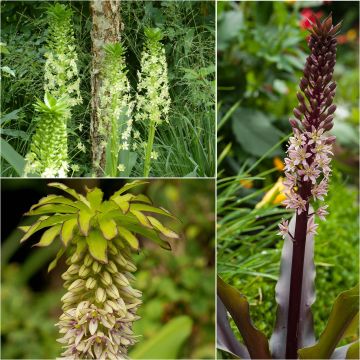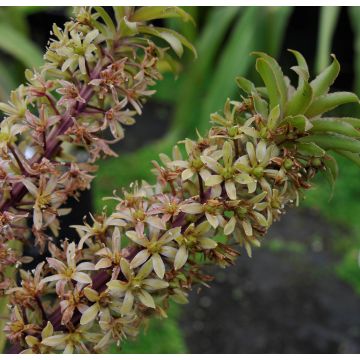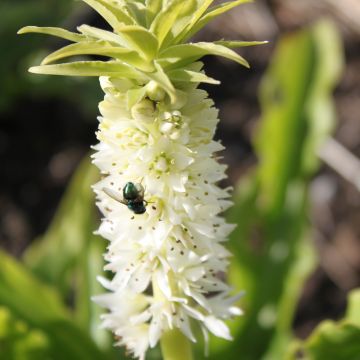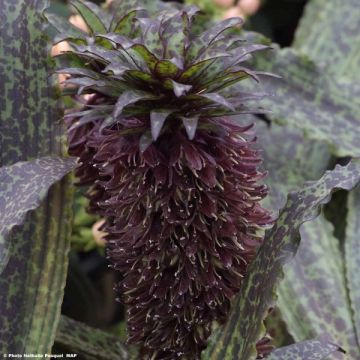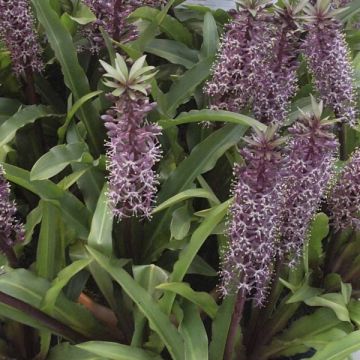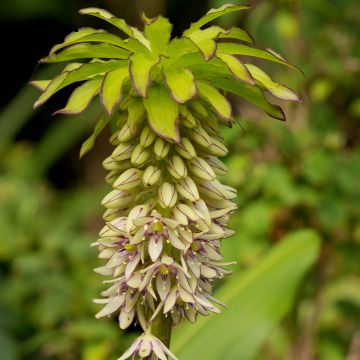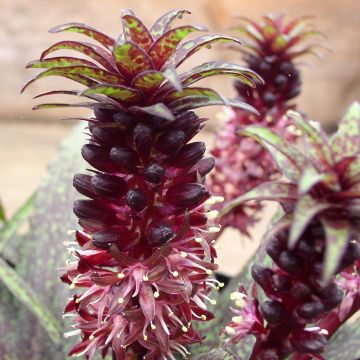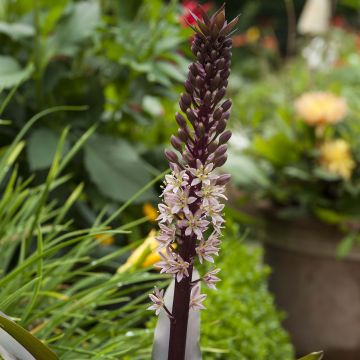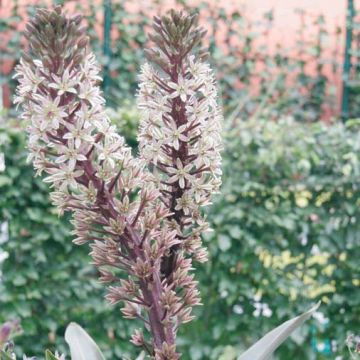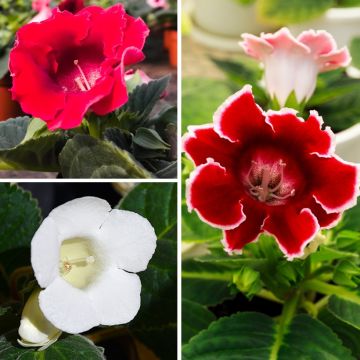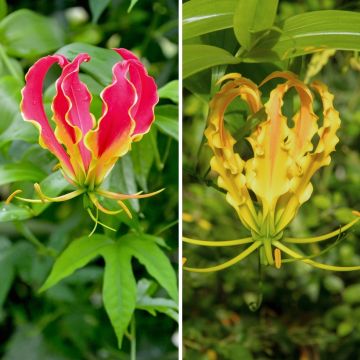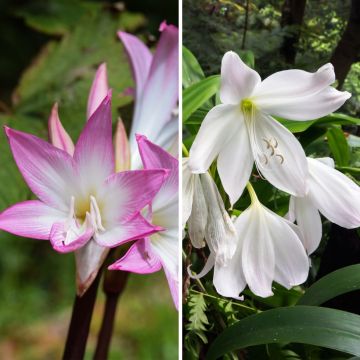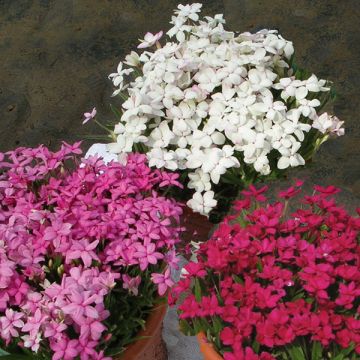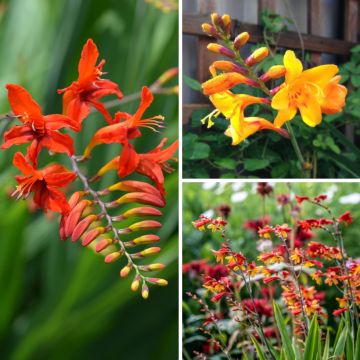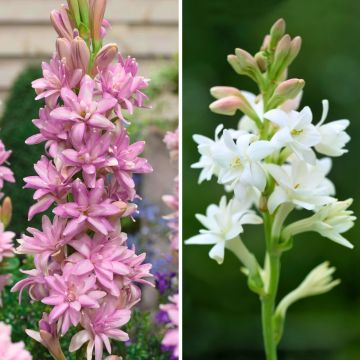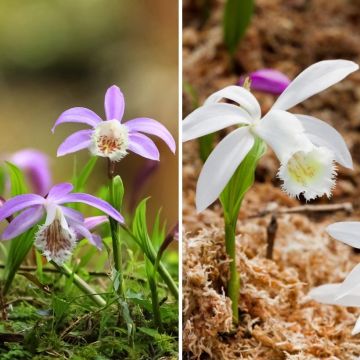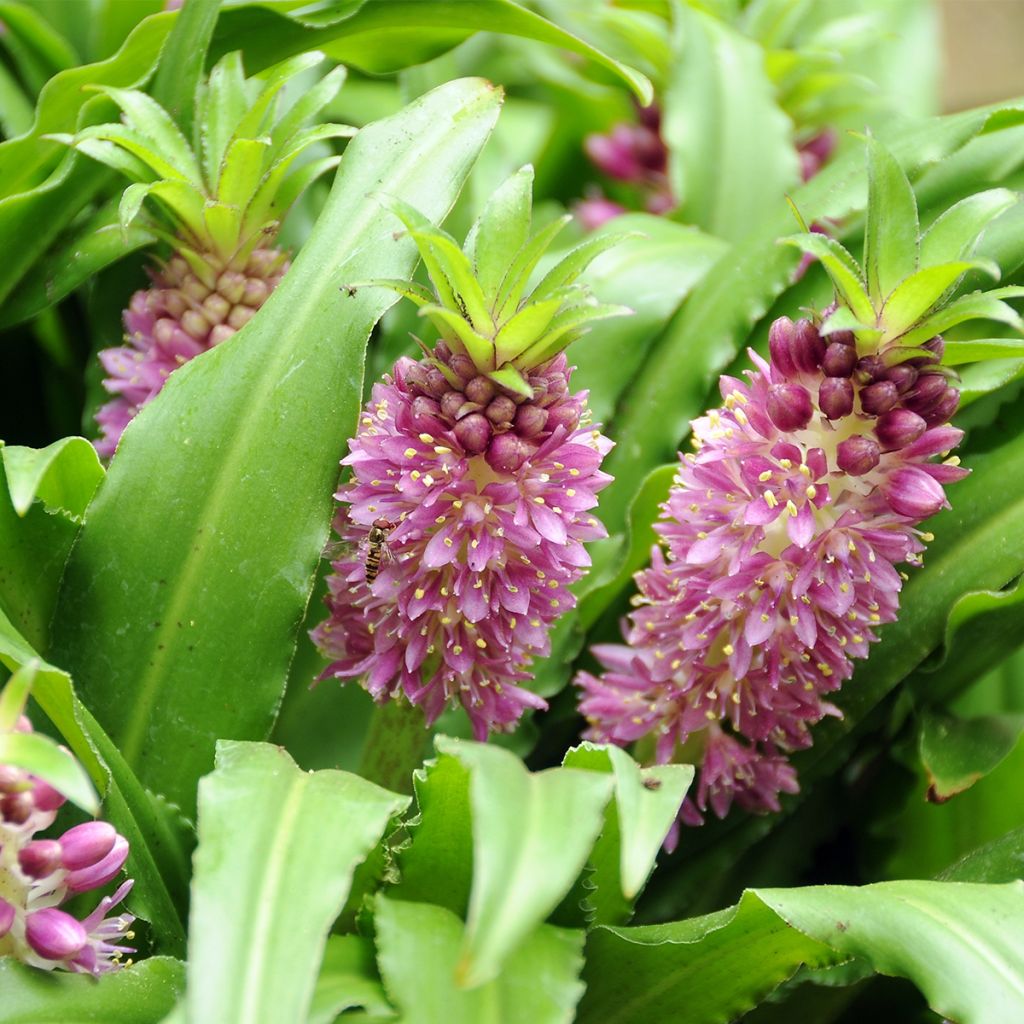

Eucomis comosa Sparkling Burgundy - Pineapple flower
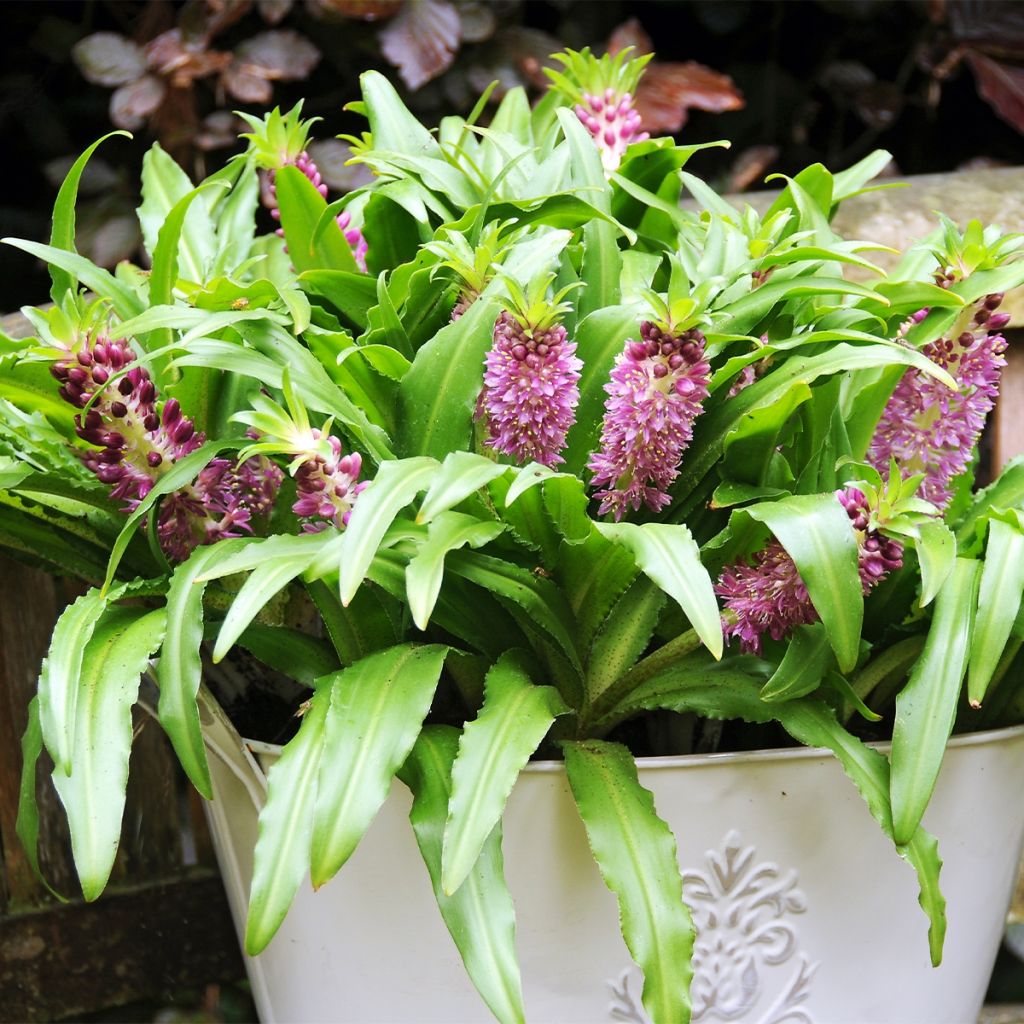

Eucomis comosa Sparkling Burgundy - Pineapple flower
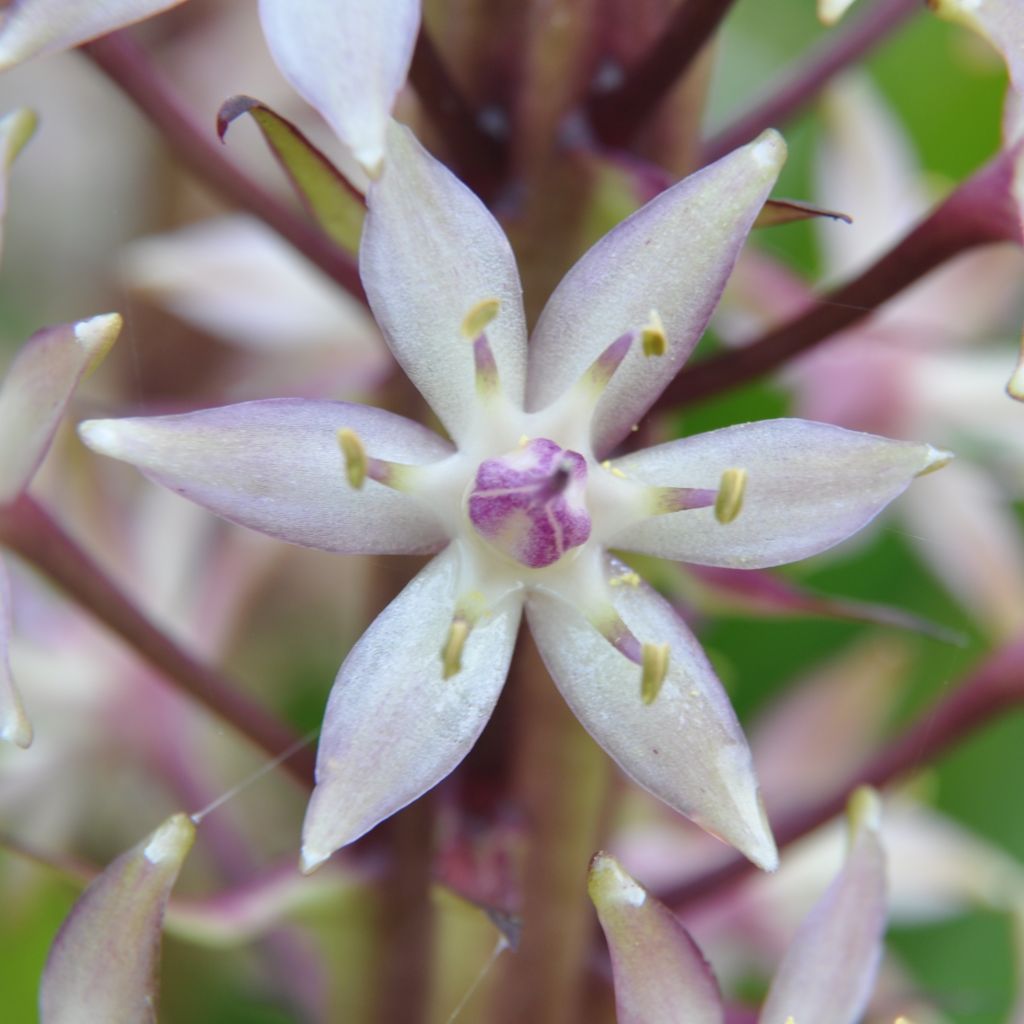

Eucomis comosa Sparkling Burgundy - Pineapple flower
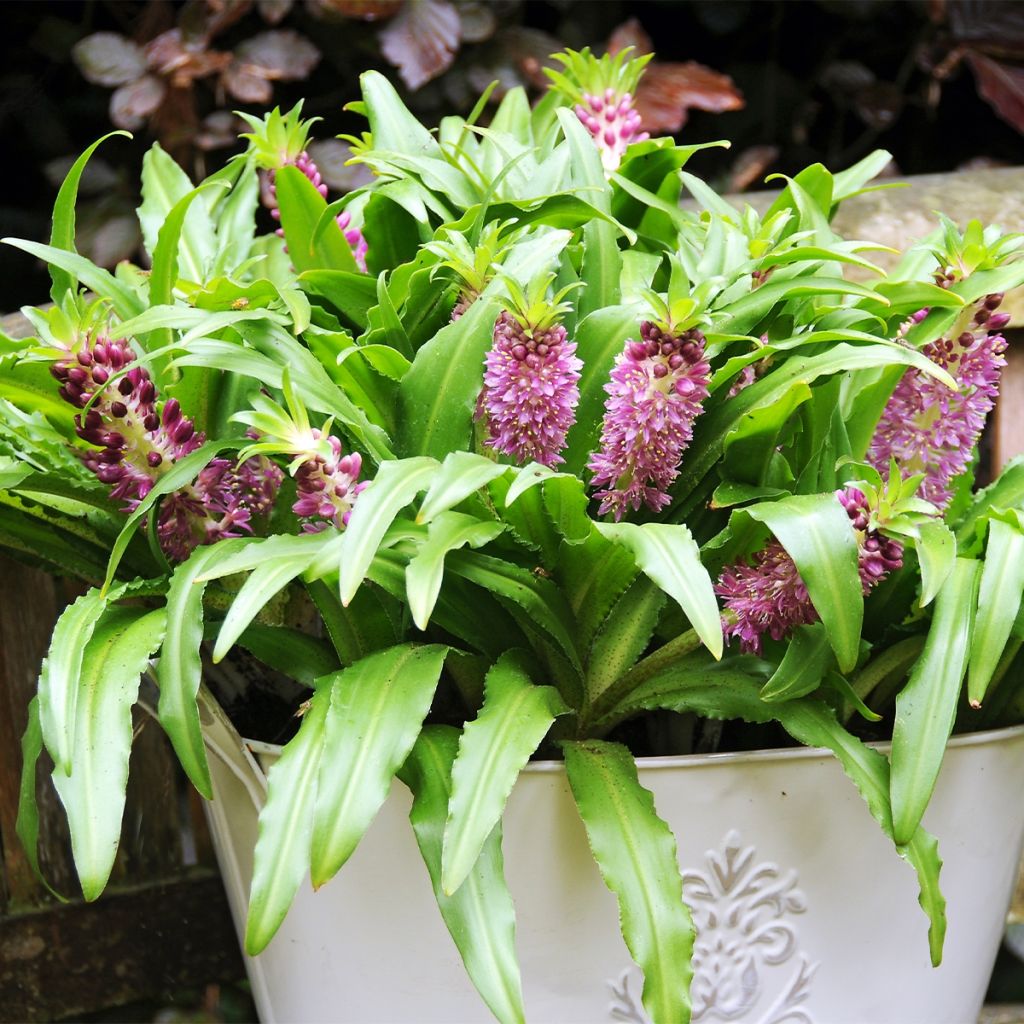

Eucomis comosa Sparkling Burgundy - Pineapple flower
Eucomis comosa Sparkling Burgundy - Pineapple flower
Eucomis comosa Sparkling Burgundy®
Pineapple flower, Pineapple lily
Has never been out.
Nadine, 07/09/2022
Order in the next for dispatch today!
Dispatch by letter from €3.90.
Delivery charge from €5.90 Oversize package delivery charge from €6.90.
More information
This item is not available in your country.
Schedule delivery date,
and select date in basket
This plant carries a 6 months recovery warranty
More information
We guarantee the quality of our plants for a full growing cycle, and will replace at our expense any plant that fails to recover under normal climatic and planting conditions.
From €5.90 for pickup delivery and €6.90 for home delivery
Express home delivery from €8.90.


Does this plant fit my garden?
Set up your Plantfit profile →
Description
Eucomis comosa 'Sparkling Burgundy', also known as pineapple lily, stands out with its vigour and the magnificent colour of its foliage and flowering stems. Its opulent leaves are a dark burgundy-purple, a colour that fades and turns slightly green in summer, as if its colour migrates to its tall violet inflorescence where small flowers in shades of pink and cream bloom. Its powerful rhizome is quite hardy and is able to survive our normal winters. Its incredibly exotic appearance provides a great remedy for gardeners in need of colour and form. This plant thrives in pots and borders, and produces excellent flowers for bouquets. It should be planted in rich, moist, and well-drained soil.
Eucomis 'Sparkling Burgundy' belongs to the Asparagaceae family. It is a horticultural selection derived from E. comosa, native to southern Africa. It is a deciduous herbaceous perennial that develops from a large bulb. Over time, it forms a clump that reaches 70cm (28in) in height when flowering and occupies 60cm (24in) in width on the ground. In spring, its foliage emerges in a voluminous rosette of shiny dark purple to burgundy leaves. Initially small in size, they grow and expand until flowering. They are thick, long, and linear, arranged in a crown around a central axis. In the heart of summer (July-August), this eucomis unfolds a large purple flowering stem covered with violet buds that open into tiny pink and then cream flowers, crowned with a small bouquet of leaves, similar to the one found at the top of a pineapple. The flowering is followed by the formation of highly decorative pods. This plant produces bulblets around the main bulb, helping the clump to slowly expand over time.
Plant Eucomis 'Sparkling Burgundy' in a rock garden or along a well-drained flower bed, alongside kniphofias, crocosmias, and Gladiolus callianthus. On its own, it creates magnificent borders near pathways. It will also look elegant alongside helxine, columbines, ferns, tall foxgloves, or carpets of violets. Hardy to -10°C (14°F), Eucomis 'Sparkling Burgundy' grows in full sun or partial shade in any well-drained, rich, and moist soil. It is also easy to grow in a pot (which allows for overwintering), and its long-lasting flowers make beautiful exotic bouquets.
Report an error about the product description
Eucomis comosa Sparkling Burgundy - Pineapple flower in pictures
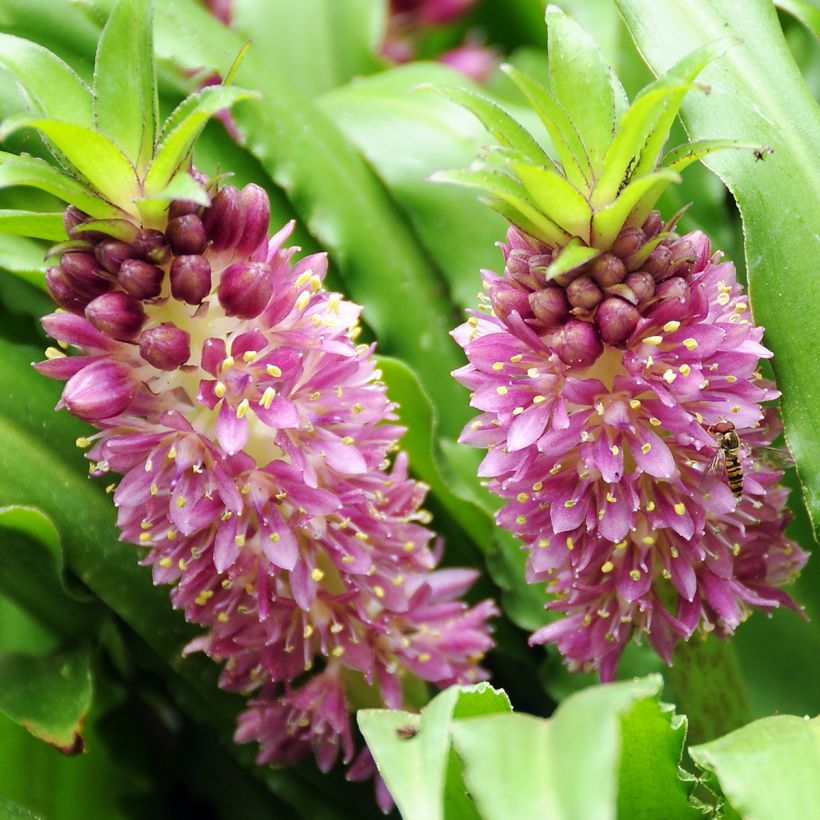

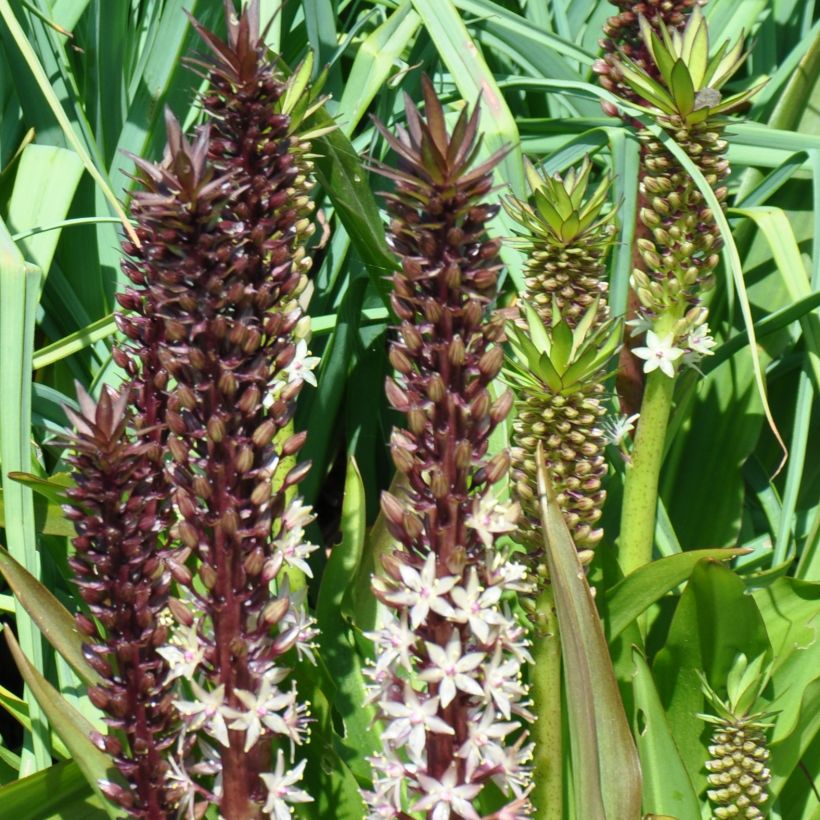

Plant habit
Flowering
Foliage
Botanical data
Eucomis
comosa
Sparkling Burgundy®
Hyacinthaceae
Pineapple flower, Pineapple lily
Cultivar or hybrid
Other Eucomis
Planting and care
To maintain the purple tone of the foliage, it is essential to plant it in full sun in cooler regions. Dappled sun is sufficient in warm regions. Plant the bulbs at a depth of 10cm (4in) in well-drained soil, spaced 15cm (6in) apart. In heavy soil, plant the bulb in pure sand. It is also easy to grow in a container: 1 bulb per 18cm (7in) diameter pot. The plant is hardy to -10 to -15°C (14 to 5°F) in well-drained soils that are not waterlogged in winter. In regions with harsh winters (or if bad weather is forecast), mulch the clumps and protect them with tarpaulin or a roof tile.
Planting period
Intended location
Care
-
, onOrder confirmed
Reply from on Promesse de fleurs
Bulbs to grow in pots
Haven't found what you were looking for?
Hardiness is the lowest winter temperature a plant can endure without suffering serious damage or even dying. However, hardiness is affected by location (a sheltered area, such as a patio), protection (winter cover) and soil type (hardiness is improved by well-drained soil).

Photo Sharing Terms & Conditions
In order to encourage gardeners to interact and share their experiences, Promesse de fleurs offers various media enabling content to be uploaded onto its Site - in particular via the ‘Photo sharing’ module.
The User agrees to refrain from:
- Posting any content that is illegal, prejudicial, insulting, racist, inciteful to hatred, revisionist, contrary to public decency, that infringes on privacy or on the privacy rights of third parties, in particular the publicity rights of persons and goods, intellectual property rights, or the right to privacy.
- Submitting content on behalf of a third party;
- Impersonate the identity of a third party and/or publish any personal information about a third party;
In general, the User undertakes to refrain from any unethical behaviour.
All Content (in particular text, comments, files, images, photos, videos, creative works, etc.), which may be subject to property or intellectual property rights, image or other private rights, shall remain the property of the User, subject to the limited rights granted by the terms of the licence granted by Promesse de fleurs as stated below. Users are at liberty to publish or not to publish such Content on the Site, notably via the ‘Photo Sharing’ facility, and accept that this Content shall be made public and freely accessible, notably on the Internet.
Users further acknowledge, undertake to have ,and guarantee that they hold all necessary rights and permissions to publish such material on the Site, in particular with regard to the legislation in force pertaining to any privacy, property, intellectual property, image, or contractual rights, or rights of any other nature. By publishing such Content on the Site, Users acknowledge accepting full liability as publishers of the Content within the meaning of the law, and grant Promesse de fleurs, free of charge, an inclusive, worldwide licence for the said Content for the entire duration of its publication, including all reproduction, representation, up/downloading, displaying, performing, transmission, and storage rights.
Users also grant permission for their name to be linked to the Content and accept that this link may not always be made available.
By engaging in posting material, Users consent to their Content becoming automatically accessible on the Internet, in particular on other sites and/or blogs and/or web pages of the Promesse de fleurs site, including in particular social pages and the Promesse de fleurs catalogue.
Users may secure the removal of entrusted content free of charge by issuing a simple request via our contact form.
The flowering period indicated on our website applies to countries and regions located in USDA zone 8 (France, the United Kingdom, Ireland, the Netherlands, etc.)
It will vary according to where you live:
- In zones 9 to 10 (Italy, Spain, Greece, etc.), flowering will occur about 2 to 4 weeks earlier.
- In zones 6 to 7 (Germany, Poland, Slovenia, and lower mountainous regions), flowering will be delayed by 2 to 3 weeks.
- In zone 5 (Central Europe, Scandinavia), blooming will be delayed by 3 to 5 weeks.
In temperate climates, pruning of spring-flowering shrubs (forsythia, spireas, etc.) should be done just after flowering.
Pruning of summer-flowering shrubs (Indian Lilac, Perovskia, etc.) can be done in winter or spring.
In cold regions as well as with frost-sensitive plants, avoid pruning too early when severe frosts may still occur.
The planting period indicated on our website applies to countries and regions located in USDA zone 8 (France, United Kingdom, Ireland, Netherlands).
It will vary according to where you live:
- In Mediterranean zones (Marseille, Madrid, Milan, etc.), autumn and winter are the best planting periods.
- In continental zones (Strasbourg, Munich, Vienna, etc.), delay planting by 2 to 3 weeks in spring and bring it forward by 2 to 4 weeks in autumn.
- In mountainous regions (the Alps, Pyrenees, Carpathians, etc.), it is best to plant in late spring (May-June) or late summer (August-September).
The harvesting period indicated on our website applies to countries and regions in USDA zone 8 (France, England, Ireland, the Netherlands).
In colder areas (Scandinavia, Poland, Austria...) fruit and vegetable harvests are likely to be delayed by 3-4 weeks.
In warmer areas (Italy, Spain, Greece, etc.), harvesting will probably take place earlier, depending on weather conditions.
The sowing periods indicated on our website apply to countries and regions within USDA Zone 8 (France, UK, Ireland, Netherlands).
In colder areas (Scandinavia, Poland, Austria...), delay any outdoor sowing by 3-4 weeks, or sow under glass.
In warmer climes (Italy, Spain, Greece, etc.), bring outdoor sowing forward by a few weeks.


































